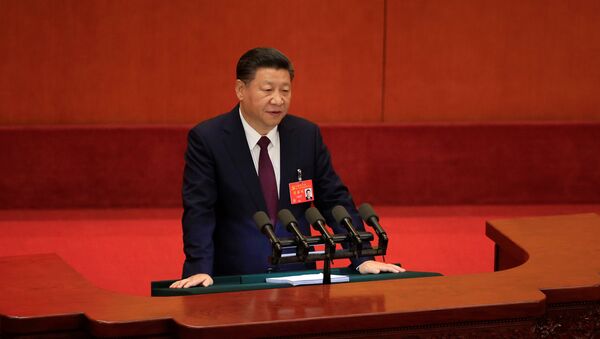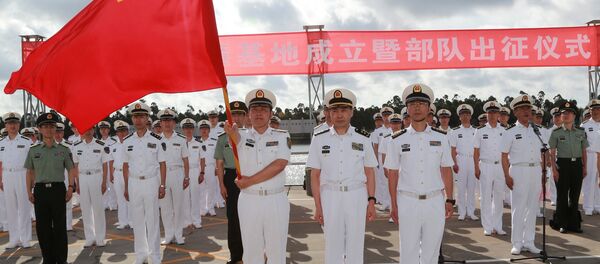China's commitment to the "policy of openness" became Beijing's major message to the world, Andrei Karneev, deputy head of the Institute of Asia and Africa at Moscow State University told Sputnik China, while commenting on the Resolution of the 19th National Congress of the Communist Party of China (CPC), which took place in Beijing between October 18 and 24.
Policy of Openness
"The Chinese leadership will continue to act on the world arena within the framework of openness, regardless of the difficulties [it is facing] in the way of globalization and emerging anti-globalist and protectionist bias in some countries," Karneev said.
The academic pointed out that being an important participant of the international system, China "contributes to world development through its ability to provide a dynamic pace of economic development while maintaining social-political stability in the country." He stressed that new phrases such as "great cause," "great struggle," "great dream" and "great project" have appeared in the congress's resolution.
'Large-Scale Processes Within CPC'
"These formulations indicate that complex and large-scale processes are taking place within the [Chinese Communist] party," Karneev highlighted. "After Xi Jinping came to power in 2012, he launched an unprecedented anti-corruption campaign. The fight against corruption intended to clear the [CPC] ranks of those who abused their power and authority."
According to the academic, by solving the corruption problem and improving the executive discipline at all levels, the country's leadership is seeking to boost the CPC's ability to manage the increasingly complex Chinese society.
Therefore, one of the 14 points that form the CPC's basic policy aimed at developing "socialism with Chinese characteristics in the new era" is "to uphold absolute Party leadership over the people's forces."
Rule of Law
President Xi's announcement of the establishment of a government group aimed at maintaining the law-based state and the creation of verification mechanisms to ensure that the decisions made by state bodies comply with the country's constitution. "Apparently, a controlling body — the State committee for supervision — will also be created soon [in China]," the academic suggested.
"We must uphold the authority and centralized, unified leadership of the Party Central Committee, closely follow the Party's political line, strictly observe its political discipline and rules, and closely align ourselves with the Central Committee in terms of political stance, direction, principle, and path," the resolution emphasized.
According to the scholar, they follow the same logic they adhered to during the anti-corruption campaign: to boost the role of the state and to make the management process more efficient and transparent.
"Xi Jinping and his team [are taking these steps] to implement a new package of economic and social reforms which would turn China into a rich, powerful, democratic, harmonious, civilized and modernized socialist state by the middle of the 21st century," Karneev noted.
Speaking to Sputnik on Thursday, Ding Xueliang, the political analyst and a social science professor at the Hong Kong University of Science and Technology, underscored that President Xi is seeking to solidify his power while facing opposition from some CPC members.
'Moderately Prosperous Society in All Respects'
The Russian academic highlighted that the CPC regards "the principal contradiction in Chinese society" as "one between unbalanced and inadequate development and the people's ever-growing needs for a better life," while proclaiming the goal of "building a moderately prosperous society in all respects."
In addition, the document promised the CPC's adherence to "a people-centered approach."
"With this, we [China] can be better placed to meet the ever-growing economic, political, cultural, social, and ecological needs of our people, and to promote well-rounded human development and all-round social progress," the resolution stated.
According to the Russian scholar, the 19th Congress of the CPC became an important event both for China and its international partners. Most expectations surrounding the forum's political course and decisions have been met, Karneev noted. Xi's report both summed up the results of the five-year-long party's work and formulated new ideas and approaches under the new conditions.
Additionally, the Congress pledged to modernize the country's military forces making them a world-class army and voiced its commitment to the implementation of the One Belt, One Road (OBOR) project. Following the final day of the congress, Xi introduced five new members of the Politburo Standing Committee (PBSC), while evading naming his potential successor.





